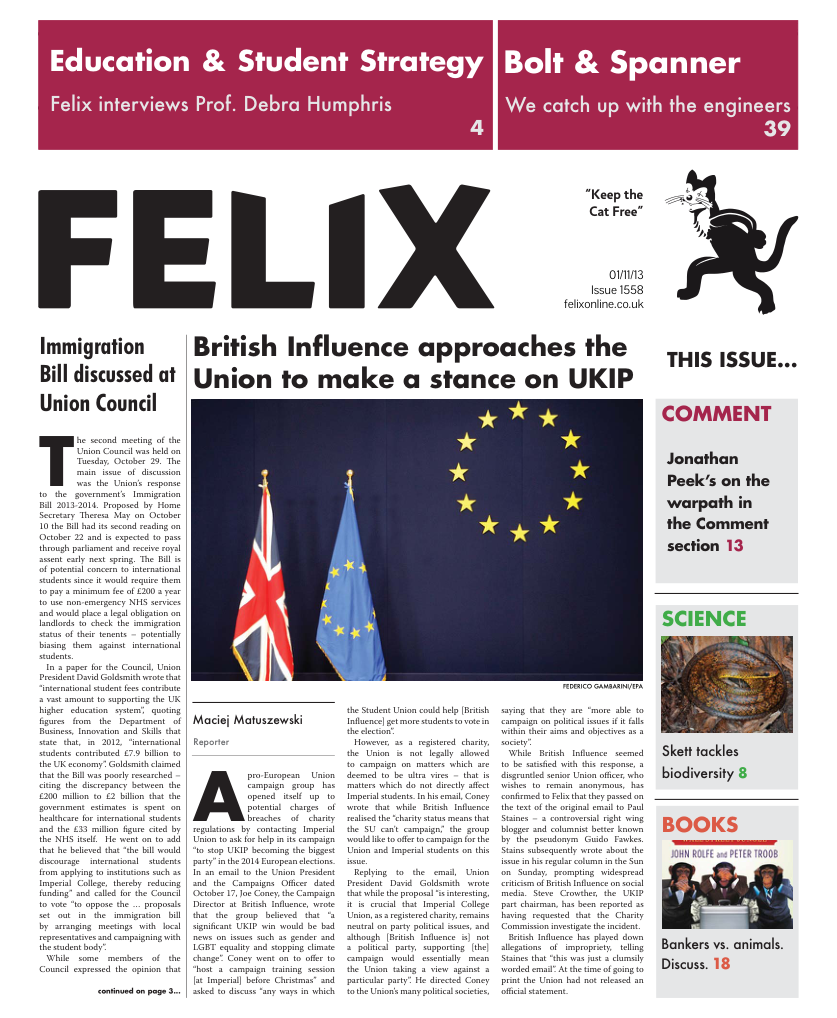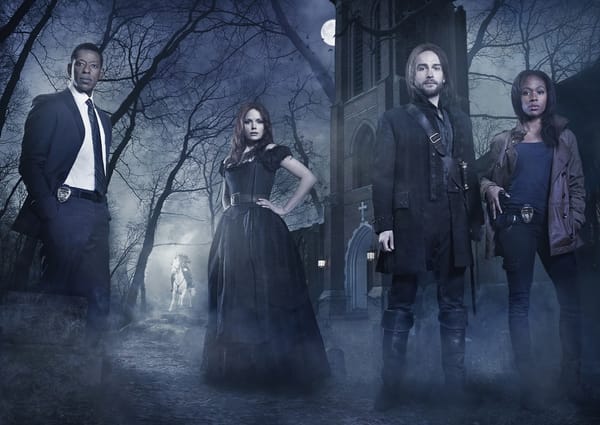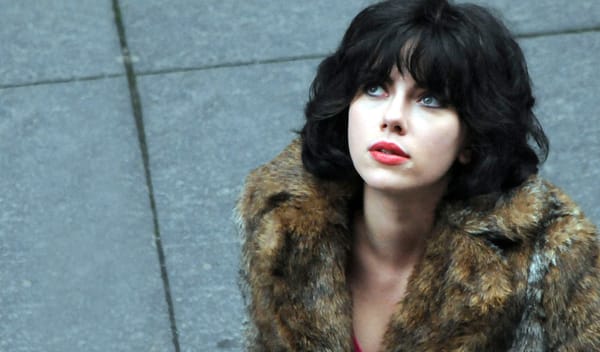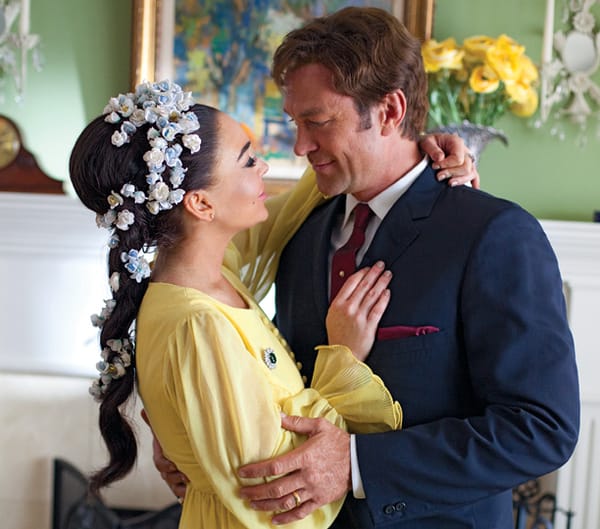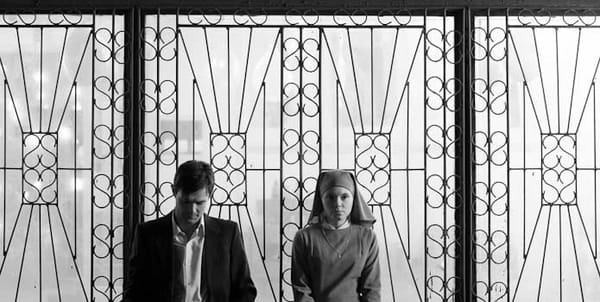The Grandmaster cut up by Weinstein
The Grandmaster Director: Kar Wai Wong Writers: Kar Wai Wong, Jingzhi Zou, Haofeng Xu Starring: Tony Leung Chiu Wai, Zhang Ziyi Runtime: 108 minutes Certification: PG-13 (USA)
It has been a difficult couple of months for Harvey Weinstein. As well as recutting his documentary of J.D. Salinger after it was savaged in reviews, he is now engaged with arguments with the directors of both Grace of Monaco and Snowpiercer over his liberal use of editing that has earned him the moniker Harvey ‘Scissorhands’. And so it is perhaps unsurprising that he seems a little defensive when he goes up alongside BFI director Clare Stewart to introduce this year’s Surprise Film - The Grandmaster by legendary auteur Wong Kar-Wai. ‘We tried to keep it as chronological as we could’, Weinstein explained ‘but at the end of the day, who gives a shit?’. Oh dear. What follows is 100 minutes of cinema that - although beautiful - is off paced, confusing, and a little bit disappointing. I first feel like I should point out that what we are shown is the American edit, made for Western audiences, that cuts the original film down by about 45 minutes, while adding in a number of scenes not in the original. It would be unfair to Kar-Wai to pretend that this was his original vision for the project, and since there is no UK release date on the horizon as of yet, I would urge readers to order an imported DVD from Asia in order to watch the film in its original glory. With that addendum out of the way, onto the film itself. The Grandmaster tells the story of Ip Man, played by Kar-Wai regular Tony Leung, a legendary master of Wing Chun, a form of martial arts originating from Southern China. Ip Man is perhaps most famous for training Bruce Lee, but this point is only touched upon at the end of a film which explores his early life, while adding a few historically inaccurate embellishments. In a series of snapshots, we see him become an expert at Wing Chun, and solve the conflict between Northern and Southern schools, before the Second World War robs him of his family, and he is exiled in Hong Kong. Running parallel to this, we have the story of Gong Er (Zhang Ziyi), the beautiful daughter of a Northern grandmaster, and a fierce fighter herself. She must avenge her father, and continue her legacy, but is ultimately also forced to stay in Hong Kong. Their two paths cross at various times throughout the film, and a sort-of love story emerges, although this is cut down in the edit in favour of a more action packed film. There really needs to be a word to describe Wong Kar-Wai films - Kar-Wai-an? Kar-Wai-esque? - since his films share an arresting visual style. The entire film is beautifully shot, using every weapon in Kar-Wai’s arsenal: the choppy scenes familiar from Chungking Express, the garish colourscapes of Happy Together, even the warm film grain used in his 2000 masterpiece In the Mood for Love gets a look in. The fight scenes are especially well done, climaxing with a scene at the train station which is among the most beautiful pieces of cinema I have ever seen. Sound, sight, and colour all come together to create a perfect balance that is completely novel, but also recognisably Wong Kar-Wai. While the stylish martial arts theme immediately invites comparisons to Ang Lee’s Crouching Tiger, Hidden Dragon, this film does not have the same lightness of touch. It is a heavy film, with ponderous questions about the nature of love and life, but that does not make it a bad one. In fact, it is refreshing to see such gravitas being brought to a genre that has had to endure countless terribly trashy films. Tony Leung gives a characteristically restrained performance as Ip Man, one full of nuance and subtlety, while Zhang Ziyi is positively effervescent - a luminous presence on the screen, who manages to light up any scene she is in. Unfortunately, despite the incredible performances, direction, and cinematography from Philippe Le Sourd, The Grandmaster seems to be missing something. Kar-Wai is famed for his unique, somewhat novel approach to filming, in which he will reshoot some scenes again and again, before scrapping them and coming up with new ones on the spot. Up until now, his films have managed to have this sense of energy, while editing has maintained the pacing, but in this film that is completely off. Some plot lines whiz by like speeding trains, while others linger without being truly resolved; characters are introduced as if they have great importance, before never being seen again. The result is a film that feels both too fast, and sluggish; it is a strange experience. In the past the BFI has been criticised for showing safe, English-language films with broad popular appeal; when Clare Stewart asked the audience what they thought the film was going to be, she was met with a barrage of names that included The Butler, August: Osage County, and Her, which could all - for better or worse - be described as ‘Oscar bait’. The fact that we got to see The Grandmaster was certainly a surprise, but perhaps not a welcome one and during the screening around 20 people walked out. Still, The Grandmaster is by no means a bad film, and the recut has been widely criticised across the board for being unrepresentative of the real film. With that in mind, I anxiously await my Amazon parcel containing the Chinese version of the film; hopefully it will be a real surprise - and a good one this time.


